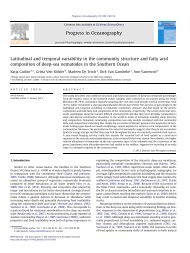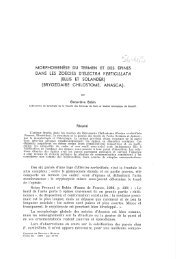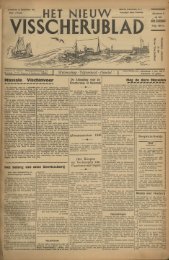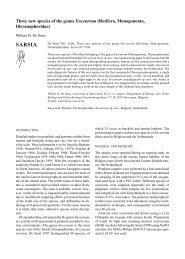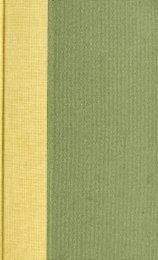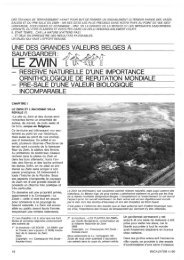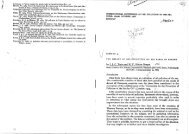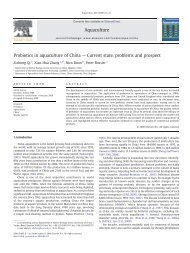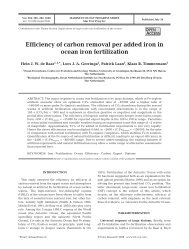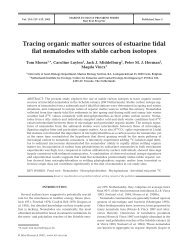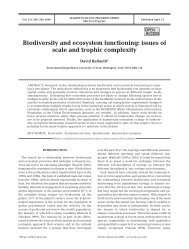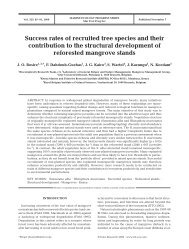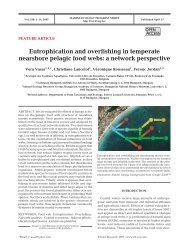Create successful ePaper yourself
Turn your PDF publications into a flip-book with our unique Google optimized e-Paper software.
8;<br />
Tuticorin in 1791, when the net produce was divided<br />
equally between the Dutch and Mr. Torin acting for the<br />
<strong>Madras</strong> Government who had assumed the revenues of<br />
the Nawab. And in 1794 the Dutch received as their<br />
half share in the chank fishery for that year, the sum of<br />
2,000 pagodas. In the next year the <strong>Madras</strong> Government<br />
had again to take possession of Tuticorin from the<br />
Dutch to whom it was not given back till 18 18.<br />
Upon the rendition of the fort and factory, the Netherlands<br />
Commissioner demanded an admission of his ria^ht<br />
to the whole revenue from the pearl and chank <strong>fisheries</strong>,<br />
a claim which the East India Company resisted as having<br />
succeeded to the sovereign rights of the Nawab of the<br />
Carnatic. The <strong>Madras</strong> Government pointed out that<br />
the pearl banks being scattered along the coast of<br />
Tinnevelly could not therefore come within the limits of<br />
any Dutch settlement ; that the Portuguese and afterwards<br />
the Dutch usurped the command of the whole<br />
Gulf, they said was very probable and it was quite<br />
probable that the Dutch for a time kept to themselves<br />
the whole revenues derived from these <strong>fisheries</strong>, but as<br />
they held them by no deed and by no cession, they might<br />
be said to have held them so long only as they could<br />
keep them. Voluminous evidence was collected to prove<br />
that the native rulers— the Nayak of Madura and the<br />
Nawab of the Carnatic had never relinquished their<br />
claims to these <strong>fisheries</strong> and the dispute had been<br />
referred to Europe for settlement when, in 1825, the<br />
annexation of all Dutch settlements in India rendered it<br />
unnecessary to further debate this contention since ; 1825<br />
and indeed since 1801, when the Carnatic was ceded<br />
finally to the British, the <strong>Madras</strong> Government have<br />
exercised absolute and undivided control of both the<br />
pearl and chank <strong>fisheries</strong> off the Tinnevelly coast.<br />
A summary of the condition of the fishery coast<br />
during the Dutch period contained in a letter dated 30th<br />
June 1803 from the Collector of Tinnevelly to the Board<br />
of Revenue at <strong>Madras</strong> is so interesting that no apology<br />
is needed for its reproduction here. It runs as<br />
follows :—<br />
** As the preliminary articles of peace with the<br />
French Republic stipulate for the restoration to Holland<br />
of all the possessions she held on the coast previous to



